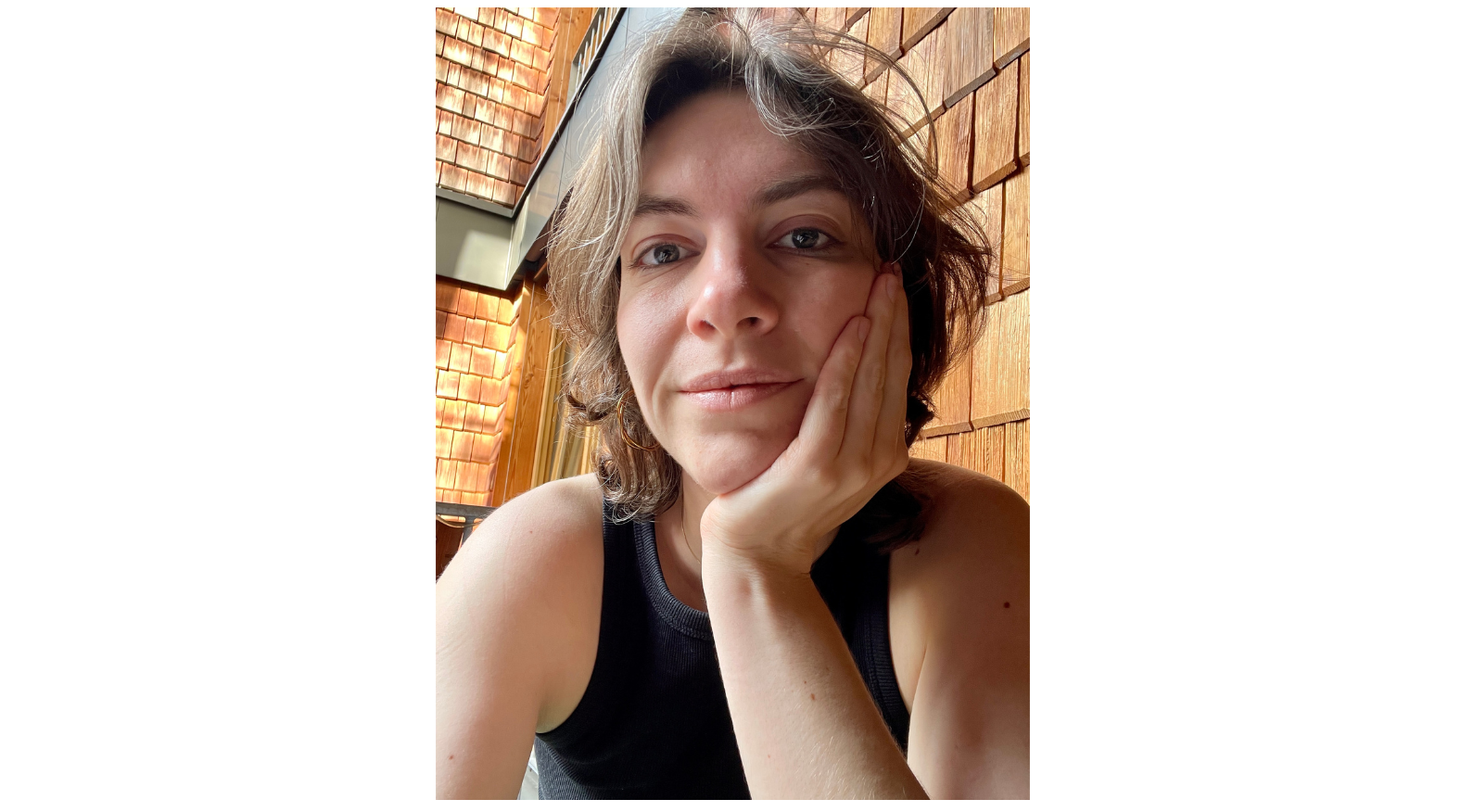Learning to Take Up Space

I’ve spent much of my life being what others needed. Helpful, upbeat, easy to be around.
But that didn’t mean I felt seen.
I used to think being seen meant being impressive. Now I see it’s something quieter: simply being allowed to exist—messy, uncertain, and still worthy.
This is the story of how I began to understand that.
The Workshop
A few months ago, I joined a workshop called The Good Girl. In a paired exercise, we were asked:
Why is it important to be seen?
My first instinct came fast:
No one really cares what I do. So why would it matter if they saw me?
Then, another thought:
There are already so many loud people in the world. I don’t want to add to the noise.
Cambodia
Two-and-a-half years earlier. I’m sitting in Cambodia, writing a travel blog on Polarsteps for family and friends. I remember how much I longed to write about what I was thinking and feeling, not just what I was doing.
But that seemed too indulgent. Too personal. No one cared, I thought.
Who was I to share my thoughts?
I didn’t have the words for it then. But now I see it: that quiet longing was the first sign—I wanted to be seen, even if I couldn’t name it yet.
Repeating the Question
Back in the workshop we had to answer the same question—again and again—for ten minutes straight: Why is it important to be seen?
My partner just repeated it, again and again.
No feedback. No conversation. Just the question.
At first, I tried to answer logically. But my voice started catching. My cheeks burned. My throat tightened. I can usually talk through anything. But this time, I couldn’t hide behind charm. I felt exposed.
The repetition stripped away my defenses. And eventually, out of the discomfort, a strange answer came:
“Because it could make others happy.”
Wait—what?
I elaborated: “If I am seen, others might feel seen too.”
It sounded noble, even generous. But something about it rang false. Like I still believed my visibility had to be useful to be valid.
Like I still didn’t believe I was allowed to be seen just for existing.
Conditioned to Perform
A quiet truth surfaced: I had learned to share only when it served a purpose—for others. Not simply to express what was real for me.
It wasn’t just a personal habit. I had been trained into it.
Psychologists call it the fawn response: the instinct to appease, to make yourself likable or useful in order to feel safe. Especially for women, this begins early. We’re rewarded for being agreeable, discouraged from being assertive.
We’re taught to be palatable. To smooth discomfort. To serve, support, and smile—without ever asking, what do I actually need?
Over time, that becomes the baseline: Don’t just be visible. Be pleasant while doing it.
And so, visibility becomes something to perform, not something to claim.
Holding Space That Wasn’t Mine
A few weeks ago, my singing teacher asked me: Why are you afraid to take up space? Why don't you dare to be loud?
The truth is, I knew how. I had worked as a brewery tour guide, speaking to rooms full of guests. I could be the life of the party, the empathetic psychologist, the chameleon who knew how to keep things light.
I was always reading the room, staying agreeable, scanning for how to show up best for others.
I filled roles. I held space. But I didn’t know how to let myself simply be in it.
That’s not presence. That’s performance.
I was a professional—at everything but being myself.
Patriarchy and the Polite Smile
This hit me with force.
Girls are taught to be nice. To accommodate. To make sure others feel good. And in doing so, we learn to mute ourselves.
One of my past dates once told me, "One day, you'll make a man very happy."
At the time, I nodded. Slightly confused, still polite. Today, that memory makes me furious.
Was that all I was meant for? To make someone else happy?
Something Softer
Back in the workshop, I finally said it out loud:
I guess it would be good to be seen to feel seen.
It didn’t sound clever or impressive. But it was real. Something in me relaxed when I said it.
Being seen, I realized, isn’t about being useful or admirable.
It’s about being honest. Unprotected. Complex. Messy. And still worthy.
The question came again:
Why is it important to be seen?
And I said:
Because when I feel seen, I feel like I can stop pretending. I can soften. I can breathe.
Then:
Because it shows me I can exist just as I am. That I matter.
And eventually:
Because when I do what feels true for me, and someone really witnesses it, it’s healing. For both of us.
No fixing. No performing. Just being in the room, as I am.
It was a beginning.

What Vulnerability Sounds Like
"Singing is like ripping out parts of your soul and putting them in front of you, for everyone to see," the voice of my singing teacher echoed.
Letting go of control, protection, professionalism. That is vulnerability.
That is being seen.
Why I Started Writing
When I began publishing blog posts, someone told me, "It’s very personal, Maria."
She didn’t say more, but the unspoken question lingered: Are you sure you want to be this vulnerable?
I wasn’t sure. But I knew this was the only writing that felt real.
Looking back, I think the impulse to write, to reach, wasn’t really about the writing at all.
The Girl I Was
I was a sensitive girl growing up in a world where emotions often went underground. We all did our best to keep things moving, but I didn’t quite learn what it meant to express myself without bracing.
I ended up in jobs that didn’t fit, dates that drained, always searching for my place in the world.
What if the need to be safely witnessed—to feel seen, felt, and met—was at the core of all that?
What Visibility Really Means
It’s one thing to admit you want to be seen. It’s another to live like you deserve it.
I’m still learning how to do that. In this blog. At work. While singing. With friends and family who sometimes seem confused when I bring less energy than before, or retreat entirely because I need quiet. With my partner, who shows me daily that it’s possible to be both vulnerable and deeply held.
It’s not always graceful. I’ve lost people. I’ve stepped away from roles I used to perform so well. Conversations I’ve stopped keeping alive. Invitations I no longer force myself to accept.
And yes, it hurts.
What’s grown in the space that’s left? Peace. Freedom. A steadier, quieter connection to myself.
And the people who remain, or arrive now, they meet me where I am.
They see me. And I feel held.
Where I Stand Now
I used to think visibility had to be earned, granted only when I made others more comfortable, more at ease.
But I see it differently now.
Visibility isn’t about proving your worth. It’s about allowing your truth to take up space. Without apology. Without armor.
When we don’t face ourselves—our longings, our shame, our truth—we can’t truly be seen. And we can’t truly meet others, either.
The cheerful, professional version of me wasn’t false. But it wasn’t the whole story. It was a mask, and no mask will ever let us feel fully witnessed.
So let me ask you:
Do you feel seen, not for what you give, but for who you are?
Does it matter to you?
Would it change something if it did?
Thank you for reading all the way to the end. This is a delicate topic for me, and I’m truly grateful you’ve held space for it. If this resonated with you and you’re wondering where to go from here:
- I’m preparing a workshop on this exact theme—visibility, presence, and self-expression—in the coming weeks.
- You’re also welcome to book a (free) intro coaching call with me if 1:1 support feels like the right next step.
You can sign up for my newsletter to stay updated.
Thank you again for your time, presence, and support. 🧡




Comments ()